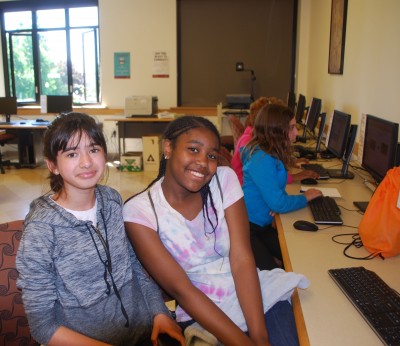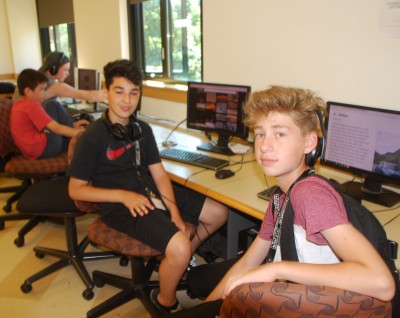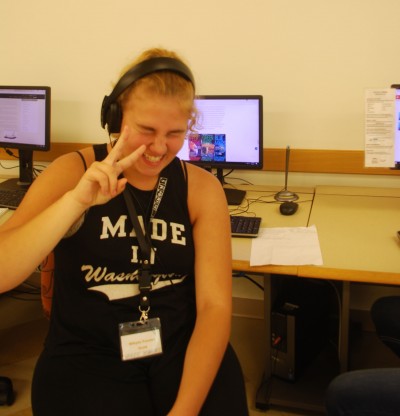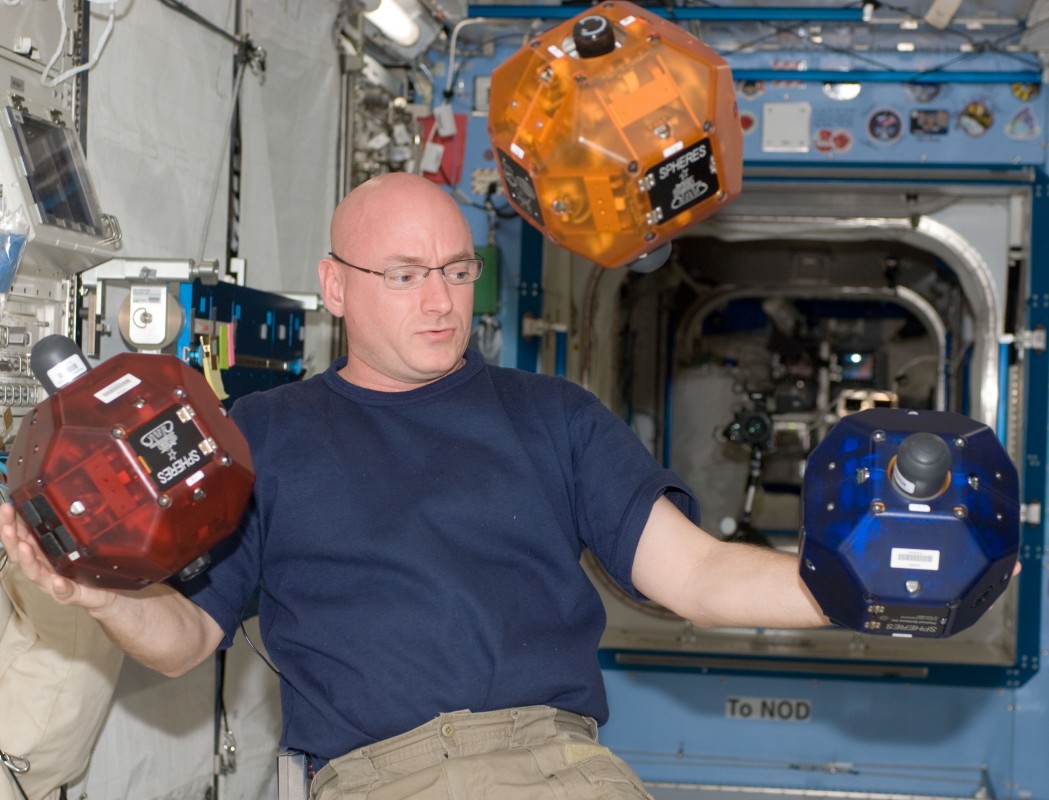Students will see a Livestream of their robots in action 8 a.m.–11 a.m. Friday, Aug. 11, Museum of Flight, Tukwilla
TACOMA, Wash. – NASA astronaut Jack Fischer will be in the hot seat on the International Space Station on Friday, Aug. 11. He will be under the scrutiny of dozens of American and Russian middle school children watching from Earth as he referees a microgravity game of “program your robot to grab the most floating objects” in the finals of the international Zero Robotics tournament.
Among the faces watching the local Livestream at the Museum of Flight: 18 schoolchildren from Tacoma and Gig Harbor, whose team beat out three regional rivals to face off on the big day against 12 other finalist teams the United States and Russia.
The local group of seventh- and eighth-grade students are participants in the University of Puget Sound’s Summer Academic Challenge, a science and math-based enrichment program run by the college’s Access Programs for underrepresented students from Tacoma Public Schools.



NASA and MIT Space Systems Laboratory lead the annual Zero Robotics game on the space station, with School’s Out Washington coordinating the Washington state competition. The game challenges schoolchildren from across the country and overseas to design a robotics program to solve a problem of genuine interest to NASA and MIT.
The “Puget Sounders” team from the University of Puget Sound came first in the state by designing the best program to control NASA’s colorful sphere-shaped robots or SPHERES (Synchronized Position Hold, Engage, Reorient, Experimental Satellites). In a real-life scenario, their program could potentially pick up spacecraft spare parts or broken satellite items floating in space and bring them to the space station.
The 13 finalist student teams will be watching their robots in action, via a Livestream feed, in venues from Massachusetts to Alabama to California. The Puget Sounders team will view the tournament at 8:20 a.m. on August 11 from the Space Gallery of the Museum of Flight in Tukwila, just south of Seattle. You can watch it live on the University of Puget Sound Access Programs’ Facebook page.
“The kids got five weeks to train and experiment with a graphical simulator, which has on-screen elements that look rather like a puzzle, and that have their movements translated into computer code,” said Joseph Colón ’10, Puget Sound Access Programs coordinator. “They had to come up with a strategy for collecting ‘high-value’ objects floating in the station that would also give them the scope to defend their own bin of objects or to try to grab competitors’ objects.”
On the big day, each team’s computer code will be loaded.
On to computers on the space station. The team that scores the most points for collecting objects will win. All teams participating in the program receive trophies for recognizing their work.
Amy Gerdes, the Access Programs teacher guiding the Puget Sounders, said the Zero Robotics’ experience in coding and its real-world application help prepare the students for studies and careers in the sciences, math, computer technology, and engineering.
“Win or lose, the code will be archived by Zero Robotics and potentially used in the future by space agencies on missions to Mars or for ongoing cleanup of Earth’s atmosphere,” she said. “That’s pretty special.”
The Puget Sounders team members: Adrianna Pettway, Aunya Crow, Gabriela Lizarraga, Gabrielle Mullen, Jasmine Chhang, Jasmine Jackson, Jenica Truong, Joseph Irish, Lavina Polk, Micah Long, Miguel Angel Davila, Mikyla Fowler, Monee Dubose, Nicholas Yeun, Quienten Miller, Quinton Pettison, Tyler Budd, and Yahbi Kaposi.
The Zero Robotics Middle School Summer Program provides students with a five-week curriculum introducing them to computer programming, robotics, and space engineering. It is provided through a partnership between the MIT Space Systems Lab, Innovation Learning Center, and Aurora Flight Sciences. It is sponsored by NASA, the Center for the Advancement of Science in Space (CASIS), and the Northrup Grumman Foundation.
University of Puget Sound’s Summer Academic Challenge is run by the college’s Access Programs, which promote middle and high school students' academic excellence, in partnership with Tacoma Public Schools. The Summer Academic Challenge is tuition-free summer math and science enrichment program that helps underrepresented students prepare for their next academic year. The program is an integral component of the University of Puget Sound's commitment to diversity and its strategic goal to increase individuals' enrollment from underrepresented minoritized groups, improve structural diversity, and promote students’ retention and success.
School’s Out Washington’s mission is to ensure all young people have safe places to learn and grow when not in school. The nonprofit group is dedicated to building community systems to support quality afterschool, youth development, and summer programs for Washington's children and youth ages five through young adulthood.
See a video of the SPHERES in space: youtube.com/watch?v=dw4GDBJyZ2I&feature=plcp
Press photos of the students at work are available upon request.
Photos on page: From top right: Astronaut Scott Kelly plays with the SPHERES on the International Space Station (NASA); Schoolchildren enrolled in Summer Academic Challenge work on their Zero Robotics program (photo by Access Programs, University of Puget Sound)
Tweet this: Science camp kids @univpugetsound watch their robots compete on @Space_Station, w referee @Astro2fish in @ZeroRobotics final! Aug. 11
Follow us on Twitter! twitter.com/univpugetsound
